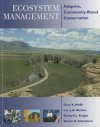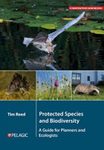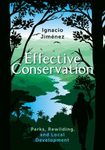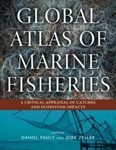By: Gary K Meffe(Author), Larry A Nielsen(Author), Richard L Knight(Author), Dennis A Schenborn(Author)
336 pages
![Ecosystem Management Ecosystem Management]()
Click to have a closer look
About this book
Contents
Customer reviews
Biography
Related titles
About this book
Today's natural resource managers must be able to navigate among the complicated interactions and conflicting interests of diverse stakeholders and decisionmakers. Technical and scientific knowledge, though necessary, are not sufficient. Science is merely one component in a multifaceted world of decision making. And while the demands of resource management have changed greatly, natural resource education and textbooks have not. Until now.
Ecosystem Management represents a different kind of textbook for a different kind of course. It offers a new and exciting approach that engages students in active problem solving by using detailed landscape scenarios that reflect the complex issues and conflicting interests that face today's resource managers and scientists. Focusing on the application of the sciences of ecology and conservation biology to real-world concerns, it emphasizes the intricate ecological, socioeconomic, and institutional matrix in which natural resource management functions, and illustrates how to be more effective in that challenging arena.
Each chapter is rich with exercises to help facilitate problem-based learning. The main text is supplemented by boxes and figures that provide examples, perspectives, definitions, summaries, and learning tools, along with a variety of essays written by practitioners with on-the-ground experience in applying the principles of ecosystem management.
Accompanying Ecosystem Management is an instructor's manual that provides a detailed overview of the book and specific guidance on designing a course around it.
Ecosystem Management grew out of a training course developed and presented by the authors for the U.S. Fish and Wildlife Service at its National Training Center in Shepherdstown, West Virginia. In 20 offerings to more than 600 natural resource professionals, the authors learned a great deal about what is needed to function successfully as a professional resource manager. The book offers important insights and a unique perspective dervied from that invaluable experience.
Contents
Preface
About the Authors
Essay Contributors
Introduction: New Approaches for a New Millennium
PART I. The Conceptual Toolbox
Chapter 1. The Landscape Scenarios
-The ROLE Model
-SnowPACT
-PDQ Revival
Chapter 2. Getting a Grip on Ecosystem Management
-The Evolution of Natural Resource Management Toward Ecosystem Management
-A Model of Ecosystem Management
-A Closer Look at Ecosystem Management
-Information, Organizational Behavior and Command and Control
Chapter 3. Incorporating Uncertainty and Complexity into Management
-Sources of Complexity and Uncertainty in Natural Resource Management
-Dealing with Complexity and Uncertainty
Chapter 4. Adaptive Management
-Adaptive Management: Another Way to Learn
-Active Adaptive Management
-Passive Adaptive Management
-Adaptive Management as Documented Trial and Error
-Conditions Necessary for Successful Adaptive Management
PART II. The Biological and Ecological Background
Chapter 5. Genetic Diversity in Ecosystem Management
-What is Genetic Diversity?
-How is Genetic Diversity Lost?
-The Loss of Allelic Richness
-The Role of Genetics in Conservation and Ecosystem Management
Chapter 6. Issues Regarding Populations and Species
-The Species
-The Roles of Species in Science and Policy
-Connecting Populations and Species to Landscapes
Chapter 7. Populations and Communities at the Landscape Level
-Single-Species Management
-Managing for Species Communities
Chapter 8. Landscape-Level Conservation
-Habitat Fragmentation
-Mosaic and Matrix
Chapter 9. Managing Biodiversity Across Landscapes: A Manager's Dilemma
-Ecosystems or Species? Coarse-Filter and Fine-Filter Approaches
-Landscape-Level Considerations That Protect Biodiversity and Ecosystems
-Working Across Administrative Boundaries
-HCPs: Protecting Biodiversity While Promoting Competition
PART III. The Human Dimensions
Chapter 10. Working in Human Communities
-The Success Triangle
-Stakeholder Identification and Assessment
-Techniques for Stakeholder Involvement
-Keys to Successful Collaboration
-Three Little Words
Chapter 11. Strategic Approaches to Ecosystem Management
-Characteristics of Strategic Management
-A Simple Strategic Management Model
-The Strategic-Thinking Step
Chapter 12. Evaluation
-The Context for Evaluation
-Formative Evaluation
-Process Evaluation
-Summative Evaluation
Glossary
Index
Customer Reviews
Biography
Garry K. Meffe is Adjunct Professor in the Department of Wildlife Ecology and Conservation at the University of Florida and Editor of the international journal Conservation Biology.
Larry A. Nielsen is a fisheries biologist and Dean of the College of Natural Resources at North Carolina State University.
Richard L. Knight is Professor of Wildlife Conservation at Colorado State University, and Co-editor of Stewardship Across Boundaries (Island Press, 1998) and A New Century for Natural Resources Management (Island Press, 1995).
Dennis A. Schenborn is Chief of Planning and Budget for the Bureau of Fisheries Management and Habitat Protection of the Wisconsin State Department of Natural Resources.
By: Gary K Meffe(Author), Larry A Nielsen(Author), Richard L Knight(Author), Dennis A Schenborn(Author)
336 pages


































